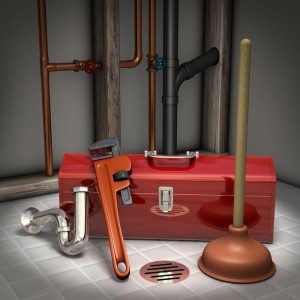When it comes to water, there is actually a lot to know. There’s a wealth of knowledge behind getting the chemicals and minerals out of the water regardless of how they got in the water in the first place. If you’re on a well, you’re dealing with ever-changing groundwater shifts. If you’re using water provided by your city or municipality, you’re dealing with cleansing agents or minerals deemed safe or additives such as fluoride for dental health. Florida weather is some of the best in the country, but our water is some of the most challenging, and definitely among the hardest!
Here’s one important fact you should ALWAYS keep in mind: any water conditioning solutions MUST be installed by a licensed plumbing company. Make sure you’re contracting with a licensed, bonded, insured company when you choose an installation. Bayonet Plumbing and AC is Ask The Seal Certified, so you know we’re covered AND that the technician has been background checked!
It’s your choice if you’d like water cleansed or softened. There are many solutions out there that will resolve your water complaints. From softeners to remove the hardness to filter media to remove specific particulate, to reverse osmosis systems to provide ideal drinking water, to sanitizing systems to take out smells and bacteria, we’re happy to provide whichever solution you’re seeking.
Let’s start with the most commonly sought solution: water softening. Some also refer to it as water conditioning. This is a process that removes the Calcium Carbonate from the water entering your home. There are costs to consider when considering the system. The softener needs to regenerate weekly at minimum. Upon each regeneration, it uses 15 pounds of salt and 100 gallons of water. That’s a given that you have to be prepared for when you install a softener. Most softeners are set up to regenerate after a set amount of water is used, but if you don’t use enough water you won’t get the benefits you desire without a weekly regeneration. They will also reduce your water pressure at least a little even if sized properly. They also don’t change the smell or taste of your water. The smells are caused by things like harmless but nuisance bacteria that need to be killed or minerals that have to be filtered, and softeners address neither of those things. Tastes are caused by the presence of total dissolved solids, and softeners only remove the calcium present in the water, so the taste won’t change either. Softeners do effectively remove HARDNESS, and that means using less soap and detergent, a reduction in water spotting on showers and dishes, and the cleaner feeling that people are seeking.
If perfect drinking water is your perfect water solution, then a reverse osmosis system is the ideal choice. These are commonly called RO systems and can be installed in almost any situation! They filter out more than 90% of anything in the water for the ideal glass of water! The water is perfect for cooking, pets, children, and even tropical fish. There are 3-stage and 4-stage reverse osmosis filters depending on your initial water quality. As for maintenance, there is a pre-filter that requires a change every 6 months and a post-filter that requires a change annually. The main media filter requires changing too but it varies greatly by usage. The more you use an RO filter, the happier that media filter stays! Our plumbers will conduct a TDS (total dissolved solids) test to make sure that filters is working before they recommend replacement.
So there you have it: our recommendations for softening and purification solutions in a nutshell. Next week: check back for information on cleaning the water and removing smell! If you’re in need of an estimate, please let us know. We’re happy to customize the perfect water solution that will be just right for you and your family, so don’t sweat, call Bayonet!

